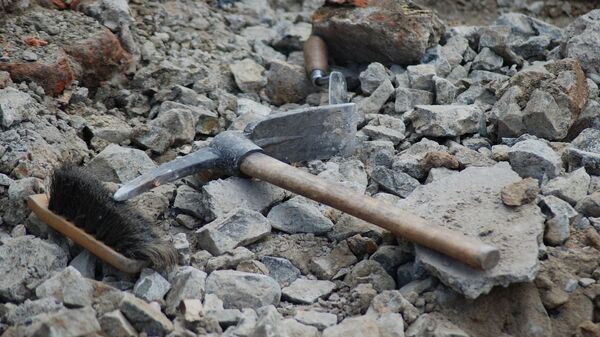According to a report by the Jerusalem Post, the 424 coins were discovered by two members participating in a dig conducted by the Israel Antiquities Authority.
The members noticed the shiny objects while digging in preparation for the establishment of a new neighborhood in central Israel.
— The Jerusalem Post (@Jerusalem_Post) August 24, 2020
"It was surprising," Oz Cohen, a member of the Tenuat Tarbut/Cultural Movement in Holon, told the Jerusalem Post.
"I was digging in the ground and when I scooped it out, I saw what looked like very thin leaves. When I looked again, I saw that these were gold coins. It was really exciting, to find such a special and ancient buried treasure,” Cohen added.
The Tarbut Movement is a “national movement of pioneering young artists who reside and work as Tarbut Communities in weakened towns and cities throughout Israel.” The word “Tarbut” means “culture” in Hebrew. Members of the movement create and deliver “innovative artistic, educational and cultural programs for disadvantaged populations across the spectrum of Israeli society,” its website explains.
"The cache, deliberately buried in the ground inside a clay jug, held 424 gold coins, with most dated to the early Islamic period and the Abbasid dynasty," Liat Nadav-Ziv and Dr. Eli Hadad, the dig administrators, told the Jerusalem Post. "The person who buried his treasure 1,100 years ago definitely expected to come back to take them, and even fixed the vessel with a nail so that it would not move."
The Abbasid Caliphate ruled over most of the Islamic empire after assuming power in the year 750. The caliphate reigned until 1258, when it was destroyed by the Mongol invasion.
According to Robert Cole, a coin expert at the Antiquities Authority, the coin cache, consisting of 846 grams of 24-karat gold, is one of the oldest ever discovered from the Abbasid Period.
"A significant amount of money in those days. For example with a sum [of cash] like this, a person could buy a fancy house in one of the best neighborhoods in Fustat, the rich capital of Egypt at the time,” Cole explained.
One of the coins discovered is extremely rare and has never been found in Israel before, according to the Jerusalem Post. It is a “fragment of a gold solidus of the Emperor Theophilus,” the Post explains, noting that the coin was minted in Constantinople, the capital city of the Byzantine Empire. Theophilus ruled from 829 until his death in 842.

